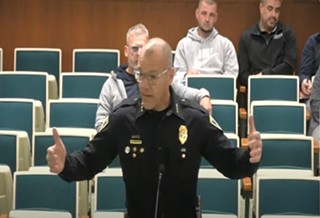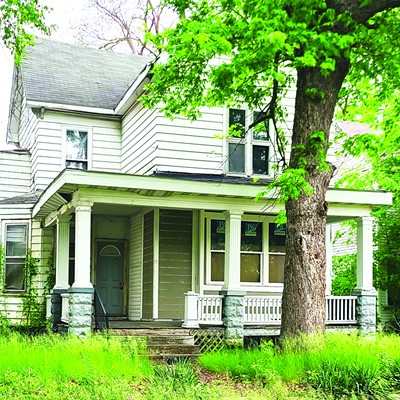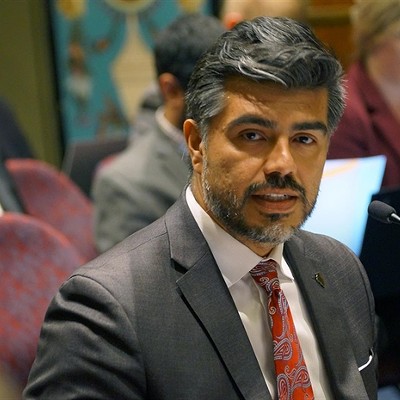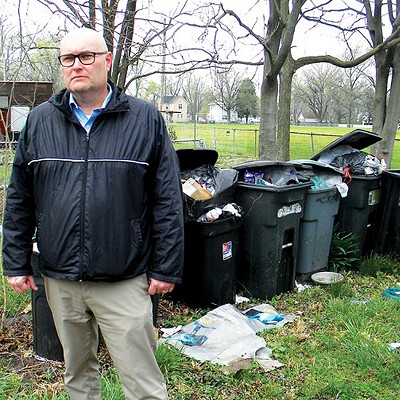The total 21% increase in pay that Springfield police will see by the end of a new four-year union contract – including a 13% raise in the current fiscal year – will help recruit and retain officers and put their salaries more in line with comparable Illinois cities.
That was the consensus of representatives from the police union and city leaders after the contract, which is retroactive to March 1, 2022, and expires Feb. 28, 2026, was approved Nov. 21 by the Springfield City Council. Nine alderpersons voted in favor and one council member, Ward 3 Ald. Roy Williams Jr., voted "present."
"It's refreshing," David Amerson, staff attorney for the Illinois Police Benevolent & Protective Association labor committee, said in reaction to the contract, which covers about 225 unionized officers. "Everything in there is needed. The department had exceedingly low morale. There was a perception of being underpaid and mistreated."
Mayor Misty Buscher, who took office in May after defeating two-term incumbent Jim Langfelder in the April municipal election, told Illinois Times the police department's low pay in comparison to communities such as Peoria, Decatur, Champaign, Urbana, Bloomington and Normal was making it hard to attract and keep officers.
"So in order to stay competitive and be able to not lose our officers once we train them, we needed to do something," Buscher said.
Police have been working under an expired contract since March 2022. The contract provides for retroactive across-the-board pay increases of 3% from March 1, 2022, through Feb. 28, 2023, a 13% increase for March 1, 2023, through Feb. 28, 2024, and 2.5% raises in the city government fiscal years that begin March 1 of 2024 and 2025.
The 13% increase includes a 10% increase that the City Council approved in February 2023 but wasn't implemented at that time. Council members said the 10% increase was intended to make Springfield more competitive with other midsize Illinois cities.
At the same Nov. 21 meeting, and with the same vote, the council took action to pave the way for Buscher to give Police Chief Kenneth Scarlette and the 16 other members of his non-union command staff raises of more than 5% for the next 12 months.
Those raises will range from 11% for Scarlette, whose annual pay will rise to about $175,000 from about $157,000, to 17% raises for lieutenants. The command staff raises, which also will be given to officers with the rank of commander, deputy chief and assistant chief, were needed to avoid situations in which the base pay for the most experienced unionized police officers were higher than their supervisors' salaries, Buscher said.
Police lieutenants will make 10% more than the most experienced unionized sergeants. Compared with those top sergeants, commanders will make 15% more, the three deputy chiefs will make 20% more, the assistant chief will make 25% more and the chief will make 30% more.
"Let me be clear," Scarlette said. "I don't do this job strictly for the money. It's for the love and the desire to lead a professional and stellar agency."
But he said the Springfield police chief's pay previously ranked 13th out of 14 municipal departments. The other departments were in Bloomington, Normal, Champaign, Urbana, Decatur, Peoria, Kankakee, Aurora, Elgin, Joliet, Rockford, Naperville and Waukegan.
The highest-paid police chief of those cities is in Urbana, where the chief earns $205,000 per year, Scarlette said.
The raise will increase the pay ranking for the Springfield chief to 10th among the 14 communities, he said.
Williams said he voted present because of a lack of details provided by the Buscher administration about the fiscal impact of the police raises. Buscher, however, said council members were emailed the cost details prior to the meeting.
Buscher told Illinois Times the city's total cost of the retroactive, current and future raises for both unionized and non-union police officers will be at least $14 million when compared with salaries paid in 2021 and early 2022.
The starting salary for a Springfield police officer, previously $51,769 per year, will rise to $78,793 in the current fiscal year, or a 52% increase. Starting pay will be $82,782 per year in the last year of the contract, or a 59% increase compared with the level in effect since March 2021.
All Springfield officers also will receive one-time $5,000 bonuses for either joining the department or remaining on the department for the next three years.
The council approved those bonuses, which include the three-year employment commitment for all officers except those at or beyond the 25-year experience level. The signing bonuses for new officers will be available through 2024, Scarlette said.
The bonuses will be funded with a $1.39 million state grant the city received from the Illinois Law Enforcement Training Standards Board.
"This is a grant we aggressively pursued," Scarlette said.
The chief said police officers in Springfield and elsewhere in the country are leaving big-city police departments because of factors related to the COVID-19 pandemic, increasing skepticism surrounding police after the 2020 death of George Floyd in Minneapolis and police reforms in the Illinois Safety, Accountability, Fairness and Equity-Today (SAFE-T) Act.
The bonuses and the pay increases will not be "the end-all, be-all fix," he said, "because law enforcement struggles to recruit quality officers, but this certainly helps us."
Former Ward 7 Ald. Joe McMenamin received criticism when he complained to the council about the levels of the raises and suggested the 13% raise in the current fiscal year would be an incentive for police officers to retire early because of the resulting spike in their pensions.
He told IT that when he voted for the 10% pay increase in February, he didn't expect the amount to be tacked on top of a cost-of-living raise.
And he told council members the city should ask the state for permission to use the $1.39 million grant for bonuses to help pay for the overall pay increases. Council members didn't take his advice.
Scarlette said at the November meeting that it's disgraceful to suggest police officers are in law enforcement "only for the money."
"It's about their love of service," he said.
The bonuses and the new contract's pay raises are "about showing them the respect they deserve," Scarlette said.
Ward 1 Ald. Chuck Redpath added: "These people put their lives on the line every day. ... We have to do this."
Dean Olsen is a senior staff writer at Illinois Times. He can be reached at [email protected], 217-679-7810 or twitter.com/DeanOlsenIT.



















